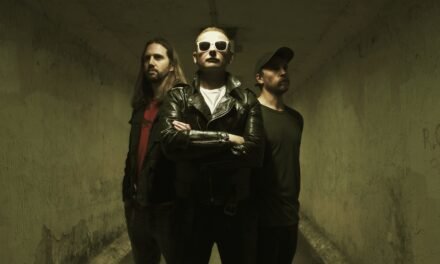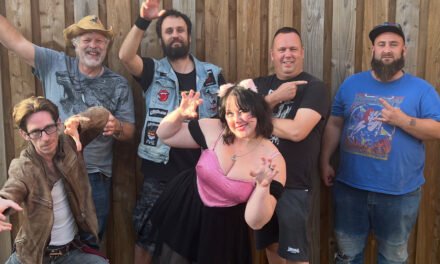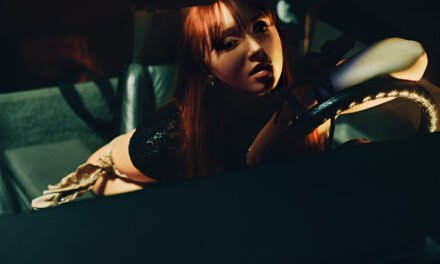Marsha Swanson Talks New Album, Her Voice And More
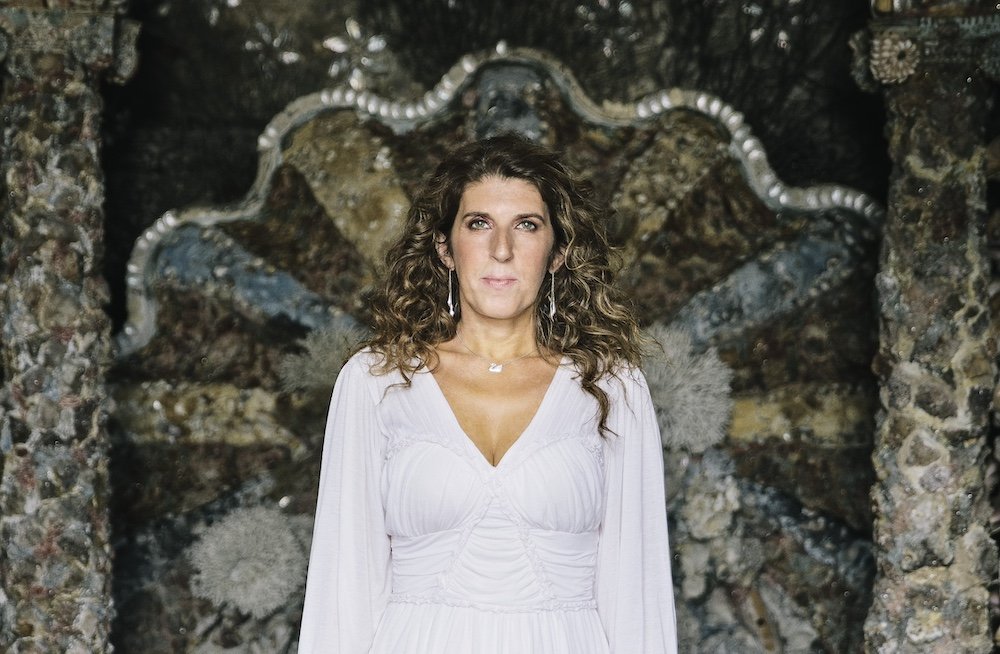

Words by Glenn Sargeant
Photo Credit: Marsha Swanson
Marsha Swanson is a singer/songwriter from London, UK. Her latest album ‘Near Life Experience’ is out now and we spoke to her all about her new music:
When did you begin song writing and recording music?
I began writing vocal melodies and lyrics when I was about 7 years old. My first song was called “Don’t be a penguin that can’t walk”. It was followed by “Invisible Man” and “Sweet Dreamer”. I can still remember the lyrics and melodies now! When my Dad got me a keyboard on my 10th birthday he taught me how to play Angie by Bert Jansch. I began to write my own instrumentals as well as songs and it was around age 11 or 12 that I began formally listing the songs that I had written (which has come in handy now for this interview). I wrote the song, “Hello” after being inspired by the Lionel Richie song of the same name at age 12. I wrote, “Come on You World” at 13 after being inspired by the Live Aid concert, “Downs-baby” after visiting Ravenswood Village, (a residential village that my Grandfather was Director of which catered for children and adults with an intellectual disability) and “Bubbleboy” after seeing a John Travolta film called “The Boy in the Plastic Bubble”. This was about a young man who was born without immunity to illnesses and had to grow up inside a specially constructed isolation bubble. On reviewing my list now, it turns out that I had written 82 songs by the age of 14!
It was around this age that my Father bought me a 4-track recorder. This was my first foray into the world of technology and recording. I really enjoyed experimenting with harmonies. As I was untrained, they weren’t the usual kind of harmonic thirds, but more like alternative top line melodies. I used the keyboard for the first track, the main vocal for the 2nd and then I remember bouncing them down to one track so that I had 3 tracks left solely for more harmonies. I am still big on harmonies now!
What is your earliest musical memory?
My earliest memory of listening to live music was from a family friend who used to play the guitar and sing whenever he came to our house. I loved his voice and I would often ask him to sing to me before bed. Other strong musical memories come from films that I watched as a child. I loved the voices of Danny Kaye and Frank Sinatra from the films “Christian Anderson”, and “Anchors Aweigh” and I wrote “I hear you tip tapping on my roof top” after watching the Gene Kelly film “Jack and the Beanstalk”.
Your latest album “Near Life Experience” is out now. How did you want to approach the making of the record?
The album began as an E.P that I recorded with producer Iestyn Polson. The opportunity to work with Iestyn reflected my mentality at the time which was a determination to make the kind of record I had always wanted to make, without any limitations. For starters, we agreed on a live band with real strings! Later, when Henry Thomas became involved and we decided to turn the E.P into an album, our joint vision was solidified even further. You could say we both became single minded in our dedication to what he called the pursuit of artistic truth! I remember him saying that the only way to make it sound like the kind of album that had a gigantic budget behind it, was to make up for what wasn’t there in finance with time. So that’s what we did! We put in the necessary thought and time to every aspect of the recording process in advance of going to the studio. This meant that the minimal number of days that we were actually booked into the studio, we used most effectively.
A big part of our approach also involved selecting musicians who were passionate about the project and who we believed had the right emotional attunement. Whilst Henry knows a great many session musicians at the top of their game who could have easily come in and delivered technically impressive performances on the spot, we were both clear from the outset that we wanted a different level of commitment for this project. We picked musicians who were both emotionally connected and psychologically invested.
Where did you record the album and who produced it?
The starting point of the album was when producer Iestyn Polson selected songs, “In Parallel”, “Still Remember”, “Homeward Bound” and “Generational Transmission” for a planned E.P. These were recorded at Konk studios. The remaining tracks were produced by Henry Thomas and myself when we decided to develop it further into an album. These were recorded by Dave Lynch at Echo Zoo Studios in Eastbourne. Additional recording of the strings, Brass, Harp, and guitar took place at Space Eko East Recording Studio in London by Alex McGowan (who I’ve been recording with since my first demos at age 19!). I also recorded and edited some of my vocals from home.
One of your tracks is the latest single “Homeward Bound”. What was the story/inspiration behind the song?
“Homeward Bound” is about the impact of early life attachment templates as being a key driving force in what we are either attracted to or repelled by in our adult romantic relationships. In the video collaboration with Continuum films we used a paper house as being the key visual motif that keeps returning. The song is raising key questions about the developmental journey of how we first navigate relationships.
Do you have any live plans for 2024 in the UK and Europe?
Following the pandemic where everyone had to come up with alternative ways to get their music out there, we had been primarily focussed on making music videos due to their global reach. However, when we performed the entire album live at Bush Hall in London on 19th January which included a live string section as well as art projections, it was a such a special occasion that it felt worthy of repeat! Financing such big live set-ups is a challenge for most independent artists these days. It was common place for me during my previous albums but has become more like a luxury now. However, we are certainly open to more live performances if the circumstances allow.
What two things do you hope to have achieved once you have left the stage?
The live performance doesn’t have to be perfect and it doesn’t need to sound exactly like a replica of the produced album. However, it does need to have communicated the core emotional essence of the songs and story effectively. If this happens and the music or words have resonated with the audience in some way, it feels like a success.
Do you have any favoured stage instruments, effects, pedals, microphones etc?
I do bring my own mic as I spent some time years ago experimenting with which ones most suited my voice and that hasn’t really changed much over the years so it’s a reliable staple. However, the final sound has much more to do with the sound engineer, the balance of instruments, the monitoring on stage and the sensitivities of the band members performing. You could have the most amazing mic in the world but if everyone around you is thrashing away, you will lose all vocal nuances! It has been one of the ongoing pleasures for me in working with my current band. They all play in service of the song as a whole.
Where is your hometown and could you please describe it in five words?
I moved 3 times but all within North London. It was cosmopolitan, inclusive, creative, safely-edgy, community minded and unrestricted. Your question sparked a conversation with some of my friends who were brought up in the same area and it seems we were all very much on the same page. They added Bohemian, Diversity, Opportunity, Characterful, Colourful, Multicultural and Musical!
How do you look after your voice?
For the most part, looking after my voice doesn’t have a separate category from looking after myself. Eating well and sleeping well and organising my life in ways that can minimise stress are all relevant. However, if I have an important live vocal performance such as I did recently with the album launch at Bush Hall, I work with my favourite vocal coach, Maria Q. In this case it was for several months leading up to the event. She brings a wealth of experience to the table and it goes way beyond vocal and breathing exercises, or honey and lemon for the throat. She is an expert in navigating and differentiating a whole range of vocal hurdles and obstructions, both physically and mentally. She is very caring and holistic in her approach and understands that the body and mind are inextricably linked!
You are given the opportunity to write the score for a film adaptation of a novel that you enjoy. Which novel is it and why?
I would most love for Lionel Shriver’s novel “Checker and the Derailleurs” to be adapted for film as I have already written the majority of the score! This novel was about a fictional band and Lionel wrote lyrics within the novel for the bands fictional songs. In the afterward she wrote, “As for the song lyrics, I had an absolute blast writing them, and if anyone is ever inspired to set them to music, they’re welcome to give it a try”. I did exactly this with guitarist Seb Cooper and we handed Lionel our demo at one of her literary events. We were delighted when she expressed that it was exactly as she heard it in her head. This began a lengthier collaboration where we set about writing the music for all of the songs in the novel. The single, “You Think I’m So Great I’m Not” was released on the same date as the U.K release of the novel to tie-in. Lionel talked about the song as one of her desert island discs on BBC radio 6 show paperback writers. I enjoyed the departure from the style of song writing that I usually do when writing for myself. I was guided purely by the description of the musical sound and instrumentation of the band in the novel. This was an edgy youthful crew with eclectic influences rooted in rock and punk. The theme of the song is about the stark contrast between the protagonist’s own idea of himself with the idolisation that he receives from his peers. It would make a great film so I hope a film producer might be reading this!
Which of your new album tracks hear you at your a) happiest, b) angriest, and c) most reflective
“Waltz for Life” was picked for inclusion on the album, even though I wrote it at age 14, because it had a certain “Joi de Vivre” in its purest form that I thought was rare for me. Prior to this, the songs “Hoovering the Sky” and “Weekend Best Friend” from my first album “Watershed” are probably my happiest sounding songs. “Hoovering The Sky”, though upbeat, could probably be more accurately described as being a song about liberation. “Weekend Best Friend”, is about the happiness of being with someone. However, it also contains within it the added complexity of a desire to change the relationship status! On my Second album, “Sentient Stardust”, a song called “My Life My Own” is probably the happiest. It is about being intentional about the choices we make in life. As with the others, however, it is not purely happy as it is also framed within the awareness of mortality.
I don’t think any of the tracks on the current album hear me at my angriest. This is probably because I wouldn’t be in the right head space to write when angry. The closest would probably be “My Rules” which has an element of let down and frustration within it. As for reflective, I would say that pretty much characterises all the rest of the album in its entirety so we’ve hit the jackpot there!
Who are some of your musical influences? Do you have any recommendations?
I am pleased to be asked this question as what has been documented previously has tended to focus on the artists who I enjoyed in my late teens or twenties onwards. However, in my earlier life there were pop artists I adored who I can still detect the influence of now in the way I form melodies. In primary school, I was a devoted Olivia Newton John fan after watching films “Grease” and “Xanadu”. In early secondary school I was a huge Wham fan. I also liked A-ha and Abba. From 12 onwards, I loved everything by Madonna and this was a period of knowing all the words and singing back everything in my bedroom for hours. In the ether of my childhood, The Beatles were always around and we even sang John Lennon’s “Imagine” in our school assemblies with the piano teacher. A bit later I was introduced to songwriters like Jackson Browne and Carole King and I fell in love with Carole King’s musical score for her collaboration with Maurice Sendak in the animation “Really Rosie”. I used to perform the songs from that in any school performance opportunity.
Looking back at other musical influences, there was also a lot of good quality music that appeared in feature length cartoons that I watched repeatedly in the 1970’s. Much to my delight, I was able to trace the cartoon from my childhood that influenced a song on my latest album, “Generational Transmission”. It was a cartoon called “Hugo the Hippo” set in Zanzibar and the song was called “Sing song, pass it along”. It deeply moved me with its soulful rhythms and melody. Another song on my album, “In Touch” was influenced by the mournful theme music at the end of the 1970’s TV series of “The Incredible Hulk” as well as the melancholic theme music from the “Rocky” films. I would still recommend all of these!
Was it a difficult album to write?
The writing part is very rarely the difficult part for me as that is the bit that comes naturally and luckily I am not in battle with myself over it. If I am sat at the piano to write, it normally means I am already in the correct mental space for it. Perhaps I would experience more difficulty if I was forced to write when I wasn’t in the mood. However, this is still an unlikely scenario, as writing in its essence is something I very much associate with freedom.
The process beyond the writing is where it starts to get more difficult and this can be where aspects of perfectionism in me will show up more. The rigour of getting the songs as good as they can be, the addition of all the other instruments, the arranging and editing, the vocal performance, and then the mixing and mastering. This can all be very challenging emotionally and physically. Doing all this with limited practical and financial resources can be quite the logistical challenge in its’ own right. However, this aspect was made a lot easier for me during the making of this album due to my partnership with Henry Thomas. Knowing that the people I am working with care about the process and end result as much as me has been a game changer!
What makes Marsha Swanson happy and what makes you unhappy?
Happiness is not a continuous state, it is momentary and hard to either capture or define. A moment of bliss eating the right food in the right location with the right company may not be repeatable even with the same sum of its parts! If we bring meaning into what makes me happy, I can get a bit closer. It would be those times when my Ikigai is in full swing! Ikigai, is a Japanese term that blends two words: “iki” meaning “to live” and “gai” meaning “reason” which translates to “a reason to live”. It’s a concept that encourages people to discover what truly matters to them and to live a life filled with purpose and joy. I ponder on this somewhat in my song “Homeward Bound” as well as in “Facing Life”. I am most fulfilled when the things that bring me joy that I can do, also have a value to others. With regard to unhappiness, I am reminded of the saying “You are only as happy as your happiest child”. I would say this is also true for your parents or others that you love deeply. Our happiness cannot exist wholly in isolation and it is therefore dependent on the happiness of others.
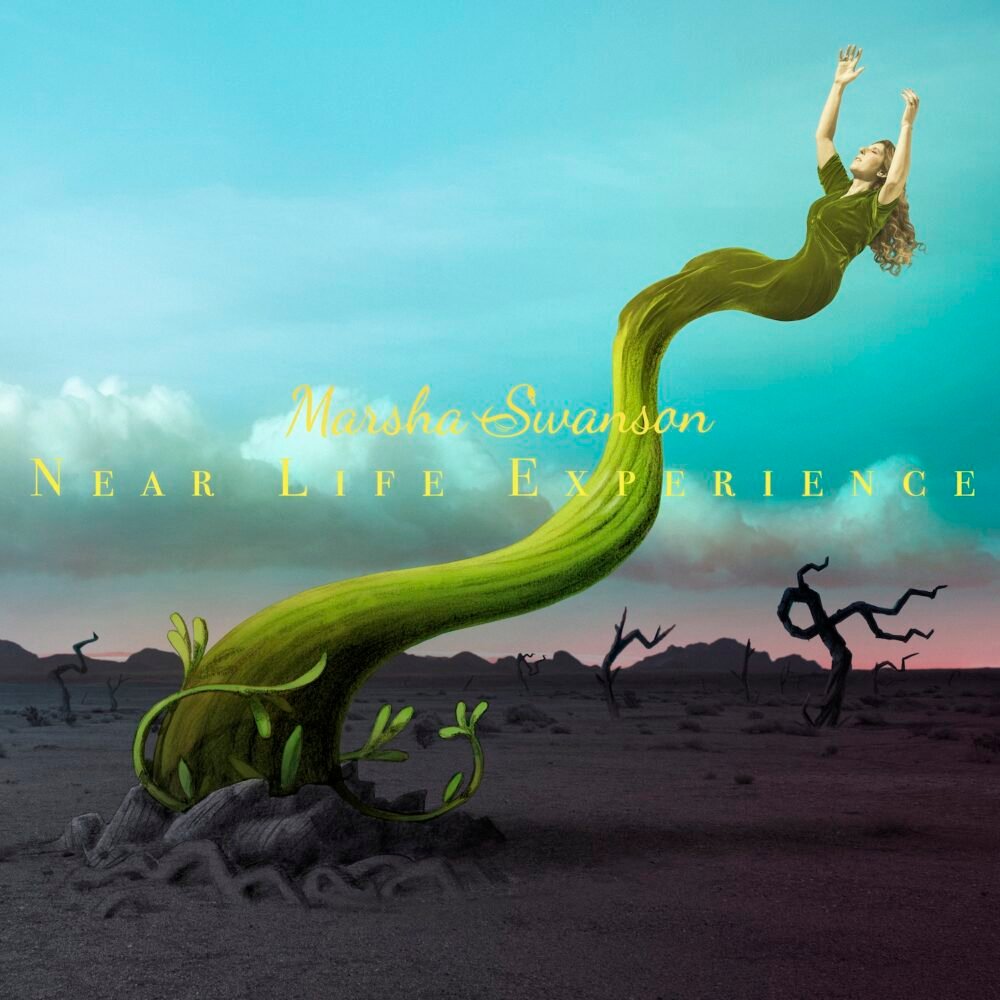
Feature Image Photo Credit: Marsha Swanson
Marsha Swanson’s latest album ‘Near Life Experience’ is out now.
Listen/Purchase: https://marshaswanson.hearnow.com/near-life-experience
For more information visit her official website: http://www.marshaswanson.co.uk/

